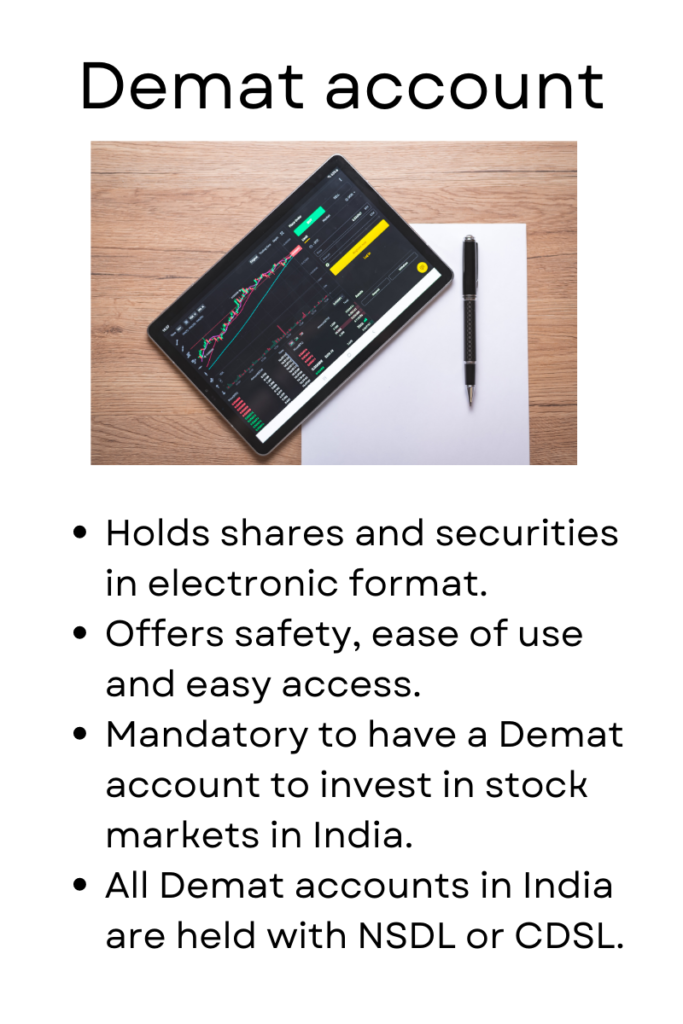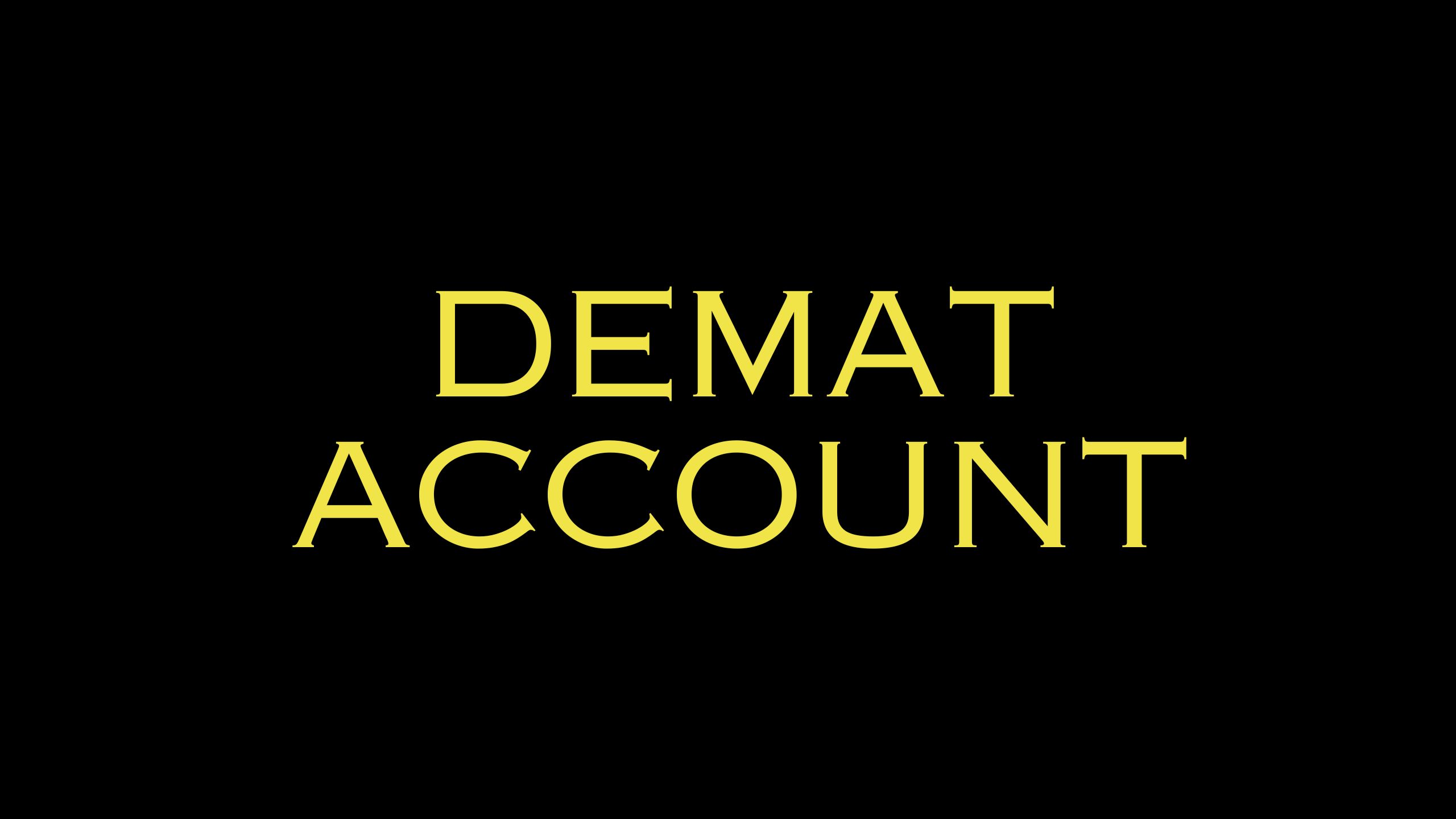Demat account is used to hold shares and securities in electronic format. The full form of Demat account is ‘dematerialized account’. Dematerialization refers to moving from physical stock certificates to electronic record keeping. The purpose of dematerialization is to convert physical shares to electronic shares and enable investors to hold all shares electronically so they are able to trade real time with ease.
Types of Demat Account
If one wants to invest in the stock market in India, it is mandatory to open a Demat account. In India, there are three types of Demat accounts.
- Regular Demat Accounts: This is for Indian citizens who reside in the country.
- Repatriable Demat Account: This account is for Non Resident Indians (NRIs) where money can be transferred abroad. This type of demat account needs to be linked to a Non Resident External (NRE) bank account.
- Non-Repatriable Demat Account: Money cannot be transferred abroad in this type of demat account. This account is also for Non Resident Indians (NRIs). This type of demat account needs to be linked to a Non Resident Ordinary (NRO) bank account.
Features
- It enables quick share transfer. One need to send a Delivery Instruction Slip (DIS) to your depository participant to transfer shares.
- One can pledge shares held in the demat account as collateral to secure loans from financial institutions.
- Demat accounts enable quick transfer of investor benefits like bonus shares, stock split, dividends etc.
- There is also a feature to freeze the demat account temporarily.
- Shares and securities are held electronically which brings more safety and ease of holding.
- As demat accounts are electronic these can be accessed from anywhere with a phone and internet connection.

How it works
In the past, transactions were conducted in the stock exchange by traders who shouted buy and sell prices of stocks. The deals were recorded on paper. After the markets closed the paperwork would continue to properly register all the transactions. Demat accounts were introduced to eliminate the paperwork and bring in more transparency in transactions.
The National Securities Depository Limited (NSDL) was established in India in 1996. The Central Depository Services Limited (CDSL) was established three years later. NSDL and CDSL are custodians of all electronic securities held by investors in India. All demat accounts in the country are held with either NSDL or CDSL. They offer Demat account opening service through SEBI registered brokers in India. You can open a demat account through a discount broker or a full service stock broker.
A demat account is generally opened along with a Trading account. A trading account is required to buy and sell shares on the stock market. A demat account stores all your investments. Lets understand how demat works with an example. Suppose Ram wants to buy 100 shares of John Black Ltd. Ram has a demat account and a trading account.
- Ram will begin by placing an order to buy 100 shares in his trading account.
- Once the order is placed, the stock exchange will process the order.
- On completion of the processing the shares will be added to Ram’s demat account. These will appear in the statement of holding.
A similar process is followed if Ram has to sell shares from his demat account. The shares will be debited to his demat account and the cash amount received on sale of shares will be added to his trading account.
Benefits of a Demat Account
- Repository for variety of instruments: A Demat account can be used to hold stock market shares and many other investments like mutual funds, Exchange Traded Funds (ETFs), bonds government securities etc.
- Nomination facility: Nomination facility is provided for demat accounts. The nomination process is to be followed as has been prescribed by the depository (i.e NSDL or CDSL). In case the investor passes away, the nominee receives the shares held in the investors demat account.
- Increased transparency, swift deliveries & transfers: The usage of demat accounts has led to more transparency in stock trades, enabled swift settlement & delivery of shares and also led to swift transfer of shares.
Image credits: Image by drobotdean on Freepik



